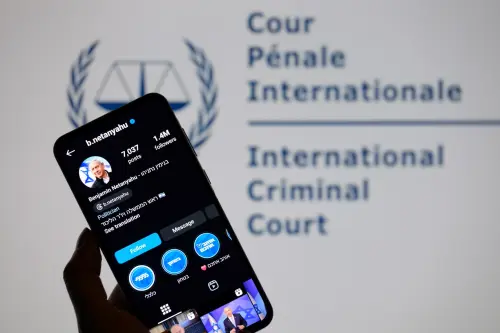There has been a lot of criticism as to how the Obama administration has handled the Libyan crisis, amidst a wider debate on the Arab Spring and U.S. policy. Most of the critics point to indecisiveness, unwillingness to lead and lack of clarity in defining the objectives for the United States or the international community. Rightly, these critics argue that neither the UN, nor the European Union, nor the Arab League have the cohesion, unity of purpose and, in particular, the military capacity to lead the international community. President Obama should have defined clear objectives from the start, put the United States in a political and military leadership position, and should now be leading the international effort in Libya and the entire region, it is argued…
I beg to differ. There was and still is indeed a clear humanitarian and political need to intervene in Libya to protect the lives of thousands if not tens of thousands of civilians. There could have been a blood bath. The fact that the international community cannot necessarily intervene everywhere there is such a danger, does not mean that it should not intervene when it can – when very broad support can be mobilized, when if at all possible legitimacy can clearly be based on a UNSC resolution, and when it is militarily possible to intervene. The Obama administration not only lent its support to the no-fly zone, but through skillful and, in fact, decisive diplomacy at the UN, was critical in securing the crucial UNSC resolution. Few did believe in early March that such a resolution would not be vetoed. Few believed that it would pass without any negative vote. And yet it did. Ambassador Susan Rice and the State department team deserve a lot of credit for that.
It is one thing to argue for a humanitarian intervention days before what could have become a huge human tragedy. It is another thing altogether to think that the United States, or for that matter anybody else, can or should attempt to micromanage change in Libya or more widely in the Arab world.
The future of the Arab countries depends to an overwhelming degree on internal dynamics. It is up to them, not outsiders, to formulate objectives and to determine their future. Granted, it is going to be very difficult. Arab political and social development faces many obstacles, not least some of the vested interests still in place. At the same time it is clear that despite huge commitments of U.S. resources, the futures of Iraq and Afghanistan are still uncertain. How can it be argued, therefore, that the United States could successfully intervene and try to steer the internal political developments in a third, and perhaps fourth or fifth country in the region? Neither the United States nor anyone else can do that from the outside. Progressive and democratic internal developments can be supported, if they take place, through favorable trade agreements; international financial institutions can be mobilized and private investment can be encouraged through risk mitigation initiatives. The United States can work with the EU and regional actors, including the GCC countries and Turkey to promote greater economic and financial cooperation. A large number of scholarships could be given to Arab students, and the philanthropic community could be enlisted in that effort. Mediation and internal peace building can be supported under UN or regional auspices. But to think that anybody can steer or impose a particular political development from abroad is pure hubris.
The Egyptian and Tunisian people are proud that they were able to overthrow their archaic governments peacefully and by themselves. The armies of these two countries were wise to let it happen. They and others who may follow their example should get maximum economic support from the international community. Their success will inspire others. Elsewhere, however, change may take much longer. Huge economic and social policy reforms will be required. Too much outside intervention, let alone military actions left and right, will be counterproductive and could make the United States responsible for lack of progress and economic hardship in the eyes of the population.
In the long run, a U.S. policy that is willing to intervene to prevent a humanitarian disaster, but that is otherwise aware of the limits of what can be achieved from abroad, that is ready to work with broad coalitions, that accepts the imperfect and yet crucial legitimizing role of the UN, and that is both realistic and decisive in terms of economic support, can earn the government and the people of the United States respect, lasting influence and the friendship of the new generations.
The Brookings Institution is committed to quality, independence, and impact.
We are supported by a diverse array of funders. In line with our values and policies, each Brookings publication represents the sole views of its author(s).



Commentary
Op-edThe Obama Administration and the Arab Spring
April 1, 2011